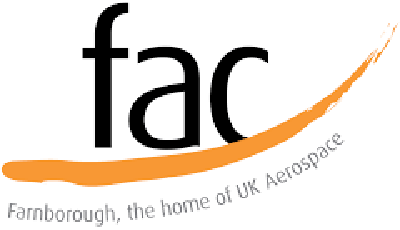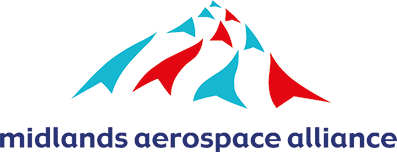The Hirschvogel Group Relies on Vericut for Process Optimisation: NC Code Simulation as a Fixed Part of the Process
As an automotive supplier, the Hirschvogel Group manufactures around 15,000 to 20,000 parts per day – over three million annually. Fully automated series production is essential, with optimised cycle times and maximum process reliability being top priorities. By using the simulation and optimisation software Vericut, machining processes can be analysed and optimised for series production in advance – with remarkable benefits.
By Ing. Robert Fraunberger, x-technik
Founded in 1938 as a village blacksmith in Denklingen, the Hirschvogel Group looks back on a long tradition. Today, the company is one of the world’s largest automotive suppliers in the field of hot and cold forging of steel and aluminium, as well as subsequent machining. Its customers include all major automotive manufacturers and suppliers worldwide. The company produces a wide range of components and assemblies for drivetrains, transmissions, chassis, bodywork, fuel systems, combustion engines, and electric motors. It’s no surprise that most cars around the world contain a part made by Hirschvogel.
Development Partner and Manufacturing Specialist
A clear trend is always present: “The components we develop are constantly becoming lighter, while also needing to withstand high loads,” explains Peter Zotz, responsible for machining process development and with Hirschvogel’s Schongau plant for 15 years in various departments. Hirschvogel brings a wealth of experience and innovation when it comes to highly stressed, weight-optimised parts and components.
From forged parts to ready-to-install components, the family-owned company based in Denklingen (Bavaria) provides everything from a single source. “We are a development partner and manufacturing specialist for the automotive industry. Besides forging, machining plays a major role in production,” says Zotz. As a cost-sensitive supplier dealing with high volumes, every cent and every second counts. “That’s why we’ve been using Vericut since 2013. It allows us to identify errors and optimise our manufacturing processes before actual machining even begins.”
Vericut as a Key Component of the Process
At Hirschvogel, all machining programs are written manually as NC code using an editor. “This is the fastest process for our needs,” says Philipp Berchtold, responsible for programming at the Schongau site, explaining this unconventional approach. As components are becoming lighter and more complex and must be delivered ready for installation, challenges in machining are increasing. To verify and optimise these programs, Hirschvogel relies on Vericut.
Because each part is optimised as much as possible, Hirschvogel uses a wide range of control types and machine tools. “Vericut is completely independent of control systems, and we can test and optimise our parameterised programs at our desks before a single chip is cut,” Berchtold explains.
Since 1988, Vericut has been considered an efficient tool for simulating, verifying, and optimising CNC machining. “For the user, it’s the safest way to simulate real machining using a virtual machine,” adds Dirk Weiß, responsible for sales in Germany and Austria at Vericut. The simulation software is, as mentioned, entirely independent of the control system, CAM software (if used), and CNC machine
From Idea to Optimised Series Production
Hirschvogel’s product development process is divided into phases. In the quotation phase, space analysis of the production system is the focus. “Here, critical tools, clamping devices, loading/unloading, and turret swing-outs are checked,” explains Berchtold. This is followed by a feasibility study, which involves a detailed process analysis, including tools and manufacturing quality.
Once the system concept is finalised, the process development phase begins. “Each machine or control uses its own defined program structures consisting of up to 150 subprograms,” says Berchtold, illustrating the complexity. Depending on the situation, existing program structures may be reused or must be newly created or adapted.
In the third phase, the component’s suitability for series production is reviewed by the responsible department and in-house automation technicians. After final approval, Vericut is used for collision checks and process optimisation. “We focus on smooth production flow with no downtime to avoid any delays during actual machining,” Berchtold explains, adding: “And all of this happens before the part even reaches the machine.” The simulation takes only a few minutes. “If an error is found, you can fix it and continue simulating from that point,” adds Weiß.
Data Package for Production
The programming department at Hirschvogel creates a data package for each part for use in series production. It includes the program structure, the programs themselves, a reviewer file (for feedback from production colleagues), and a machine setup sheet. “This data package speeds up setup and program adjustments, which leads to significant cost savings,” says Berchtold, pleased with the results.
Further Optimisation with Force Planned
Thanks to the process reliability provided by Vericut, Hirschvogel can optimise machining of forged steel and aluminium parts for the automotive industry before production begins. “We are currently testing additional feed rate optimisations using the Vericut Force module, which we expect will yield another productivity boost,” says Berchtold. Force is a physics-based optimisation method that determines the maximum safe feed rate for a given cutting condition based on cutting force, spindle power, and maximum chip thickness.
Together with Vericut, Hirschvogel is also working on achieving even more detailed cycle time analyses. “We aim to reduce theoretical cycle time deviation to under one percent,” concludes Dirk Weiß.






